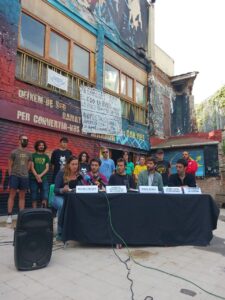
The saying “if living is a luxury, squatting is a right” doesn’t come from nowhere. In our city, for many years, the housing situation has been exclusively market-driven: Barcelona is being made into a city to be admired, to be inhabited only by hyper-qualified digital nomads and for tourists to be able to visit what increasingly resembles a theme park. In the meantime, there are evictions each day in every neighbourhood, often executed by massive police deployments.
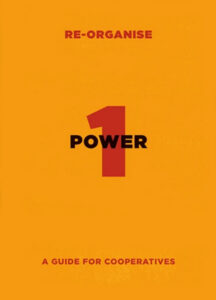
This trio of booklets is a new benchmark for materials for nascent organisers and seasoned comrades both. They provide an array of valuable lessons which will prove useful for anyone working to establish a cooperative or sim
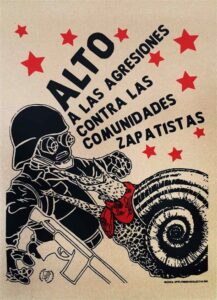
The war against the Zapatista communities is intensifying. We beg for solidarity from all over the world: stop the aggression against the Zapatista autonomous communities.
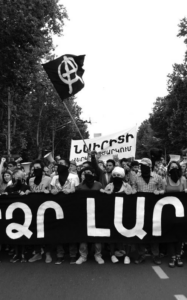
It’s 2015. In Armenia, utility prices have been rising for two years now, and the government is once again announcing a decision to raise prices by 40% - ostensibly to pay off accumulated debts to hydropower plants and the electricity supplier (Electric Networks of Armenia), now in its third year and owned by the Russian monopoly RAO UES. This provoked a wave of indignation and thousands took to the streets.

The hashtag #generalstrike is over-optimistic and workers’ self-management is not on the table. The current wave of strikes is not about how the economy is run, but about workers having some say in how the proceeds of the economy are distributed.
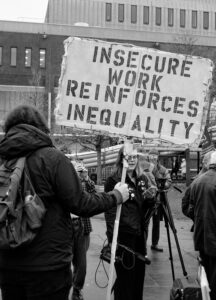
We have had a track record of winning disputes through industrial action (notably in 2007). In spite of defeats in more recent disputes, our dissatisfaction and ongoing dissent has set the tone for the confrontation.
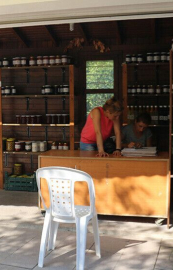
The only remaining Armenian village in Turkey's Hatay region is Vak'ëf, which still exists today and is home to around 140 people. In 2005, five of the village’s Armenian women decided to set up their own co-operative. They wanted to promote their self-organisation and economic independence and help develop their village.
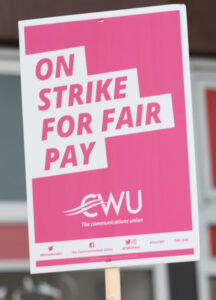
We will win some things, we’ll lose some. This whole thing has been quite emotional. It has been empowering seeing action in the form of strikes, in the wider social, in the wider context of the strike wave alongside other workers, it has been inspirational, to see a bit of class pride and solidarity. I only hope it radicalised more of our colleagues.
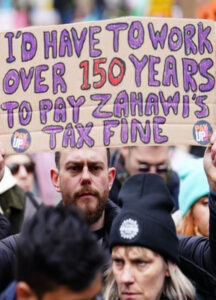
The strike day itself was inspirational! 40,000 teachers marched in London, 9,000 in Bristol and 10,000s more joining hundreds of demos in their towns and cities.
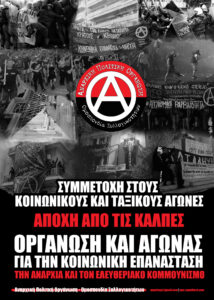
A key element of contemporary totalitarianism, as expressed by the absolute domination of the state and capitalism in any social field, is the narrative that "there is no alternative". Any narrative submitted to the political scene from the side of domination attempts to convince the social base of the inevitability of their absolute oppression and exploitation.
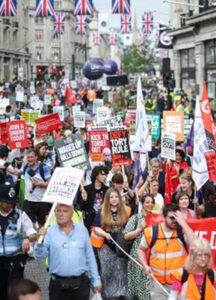
... if we leave it to union bosses, workers will walk away from disputes with less than they could have won...

Inspired by France’s Mutu Network, a group has formed with a view to creating Local Autonomous Media here in the UK. There has perhaps never been a better time.

...the more time passes in exile, the less comrades we will have around, with almost no influx, since the diasporas are not so numerous and mostly consist of the same tired, traumatised and demoralised migrants...

Of course, the truth is that there is no such competition between feminism and trans rights, quite the opposite, fascism and patriarchy are the enemy of us all.

Go and chain yourself to the railings by all means, but you’re in with a good chance of discovering that your arresting officer lives three doors down, goes to the same pub as you, and is the brother of a local councillor...
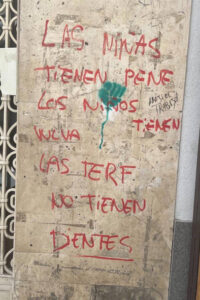
There were 12 women and non-binary people inside. They identified all of us and took down some of our details. They threatened us, yelling "if you had been drunken men, we would have battered you." Another demonstration that machismo and police abuse have been totally normalised.
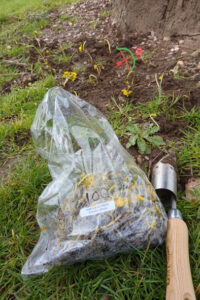
Well, I love the idea of guerrilla gardening, but I’ve always been put off by the ongoing maintenance and logistics of squatting a specific patch of wild abandonment. Sideways baseball caps off to anyone with the staying power to do it, but I already struggle to keep on top of my medium sized garden.
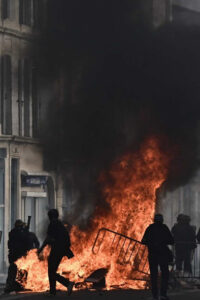
Today, the movement has reached another stage. In response to the intensification of the struggle and the diversification of tactics and battlefronts, police have dramatically escalated the violence with which they are targeting demonstrators. Even corporate business media like the The Financial Times are criticizing Macron’s repressive and authoritarian handling of the movement.

It has now been 13 years since the Tories came to power, 13 years of economic misery, rising bigotry and autocratic overreach. The past year has felt like the culmination of the Tory political project, as all of these disgraceful movements have accelerated beyond what we’re capable of keeping up with.
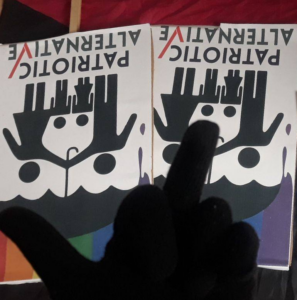
I argue that the anti-gender and mainstream fascist movements are one and the same. The differentiation between so-called ‘TERFs’ and white nationalist fascists is effectively pointless and the muddying of the waters on this point has only served to help them spread their hatred.
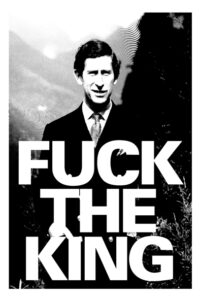
Despite their best attempts to hold on to power, waging war against any rebels and splitting up the countries to keep them divided and conquered, the sun finally set on the British Empire. Our King Charles III was there himself to witness its long-overdue death.

It is with pain in our hearts that we wish to inform you of a terrible tragedy. On April 19, 2023, our comrade and friend, the Russian anarchist Dmitry Petrov, better known to you as Ilya "Leshy", died in the battle for the crucial road to Bakhmut.
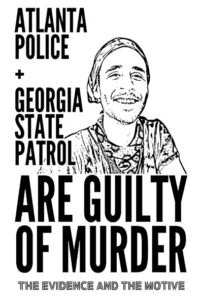
The text of this peice/zine draws on the autopsy of the Dekalb County Medical Examiner to debunk the police narrative about the events of January 18 and explore what the police stand to gain from lying to us.
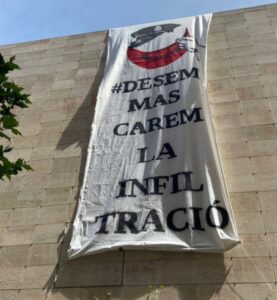
They fear us more than we thought, they believe we are more capable than we do ourselves. Our ideas and practices threaten the foundations of exploitation and devastation, on which the oppression that we face every day is built. This is why they come after us.

We are not neutral, because we are in a peaceful battle since the era of the ousted al-Bashir until now, against the militarization of the country and the control of guns on the streets.

Attention IGD listeners on Pacifica radio! It’s Going Down is moving from Fridays at 12 NOON to Wednesdays at 11 AM – 12 PM NOON, right between Letters and Politics and Against the Grain

With great pride and excitement, we can announce that our new AI, which we have called AM, is now available to help empower you. AM has been trained using every piece of Anarchist literature across several libraries and archives. AM is freely available below via our web portal for the testing phase.

"Macron is relying on lethal police violence to crush a powerful movement against his pension reform. Will he succeed? An overview and analysis including translated accounts from the streets."
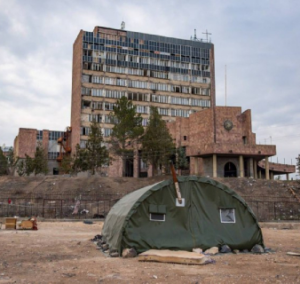
As the Azeri state’s genocidal blockade of Artsakh continues, refugees from the besieged region have found little help from the Armenian state. Unable to find any…

"In France, a new surge of protest activity has erupted against the government of Emmanuel Macron in response to an unpopular pension reform. This promises to be the most powerful unrest in France since the Yellow Vest movement. In the following introduction and translation, we explore the roots, forms, and prospects of this movement."
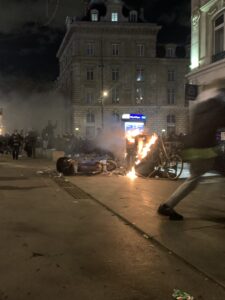
When popular opposition to his pension “reform” became too strong, French president Macron desperately resorted to invoking the French constitution's article 49.3 and forcing through his…
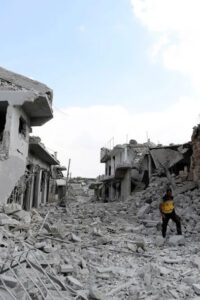
On February 6, 2023, two earthquakes of magnitude 7.8 and 7.7 hit southern Turkey and Northern and Western Syria, inflicting tremendous damage. The death tolls are currently estimated at over 48,400 in Turkey and 7200 in Syria. The following texts offer two different vantage points on the ways that the Turkish and Syrian governments not only failed to protect their subjects but used this catastrophe as an opportunity to consolidate power and target their adversaries via neglect, blockading, and even bombing.
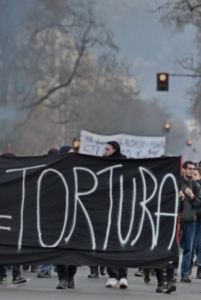
Fascists of all stripes love Death. Anarchists are for Life. Whenever they have tried to eliminate us with deportations, wars, provocations and fabrications, the force of freedom, which is the essence of life, has always proved stronger.

"On this episode of the It’s Going Down podcast, we speak with Rob from The Right Podcast, and unpack the grifters and influencers pushing a “populist”…

After being taken prisoner on 24 June, Maksym Butkevych was kept in the Luhansk remand centre the entire time. Other than a brief call with his parents, there was no communication with Butkevych, and independent Russian lawyer Leonid Solovyov was not allowed to see him.